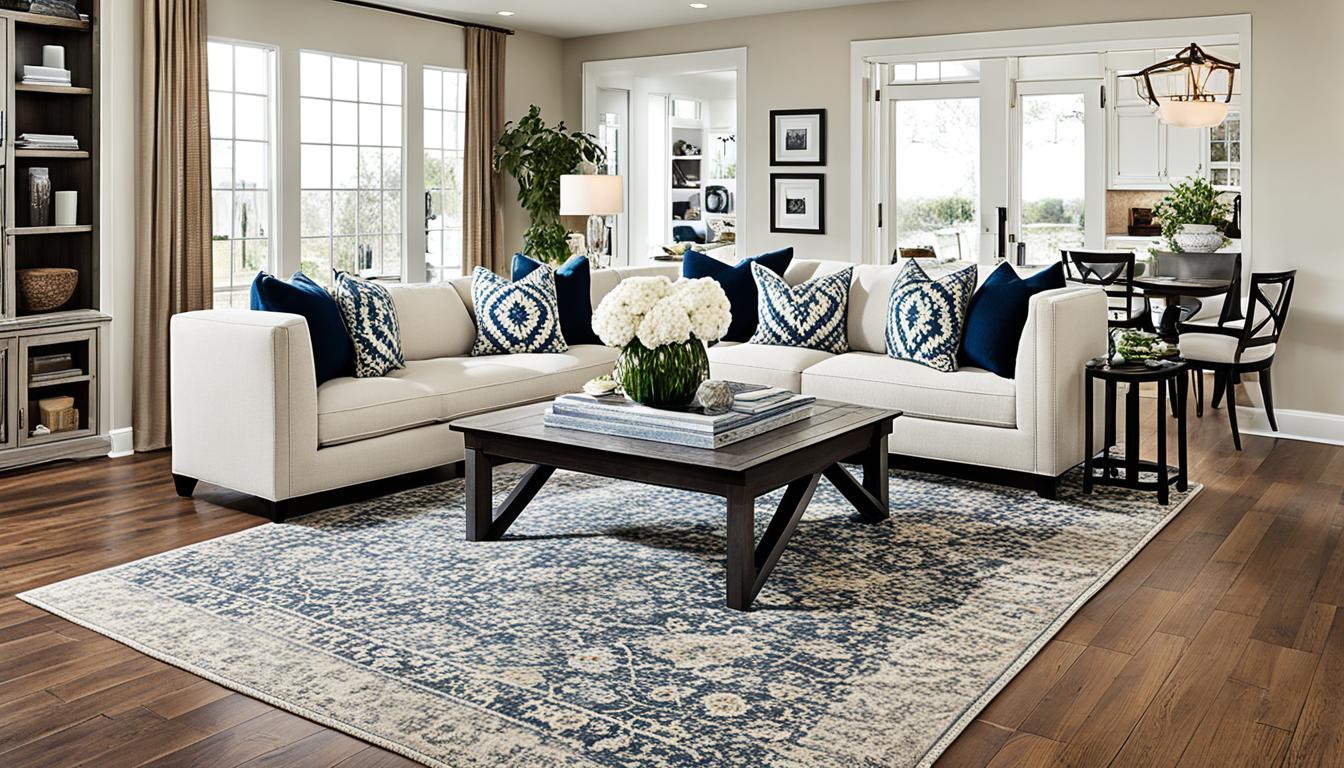Open floor plans offer modern charm, spaciousness, and abundant natural light—but they also introduce a common design challenge: how to coordinate rugs across connected spaces without overwhelming the eye. Whether you live in a loft, studio apartment, or a multi-room open-concept home, rug coordination plays a vital role in tying your décor together. To help homeowners master this skill, interior designers at Havenly—a trusted name in online interior design—share 11 expert-approved strategies, supported by real-life examples and design principles that have been tested and recommended by professionals.
1. Vary Pattern Scale
Avoid visual monotony by changing the scale of patterns. In a Brooklyn brownstone, for instance, two rugs share a warm-toned palette, but one features a tight, small-scale pattern while the other uses a large, abstract motif. This contrast keeps the overall look dynamic while maintaining cohesion.
2. Stick to a Tonal Theme
Using the same color family in varied patterns helps divide open spaces subtly. A black-and-ivory rug in the entryway might feature a centered design, while the adjacent living area rug displays a smaller, repeating motif—different, but visually connected.
3. Coordinate, Don’t Copy, Colors
Cohesion doesn’t require identical shades. A navy Persian rug in a dining area can beautifully complement a nearby reading nook’s berry-and-blue-toned rug, as long as the tones relate and support the surrounding décor.
4. Play with Texture
Balance can come through texture, not just color. A wool rug with tassels in the dining room can pair seamlessly with a jute rug in the living room, both staying within a neutral palette while offering depth and variety.
5. Blend Vintage with Modern
Contrast old-world charm with contemporary flair. For example, a neutral, geometric living room rug can sit beside a vintage black runner in the kitchen. The blend of modern and classic, as long as the colors align, adds richness and visual interest.
Also Read : Scandinavian Decor Ideas for Small Apartments
